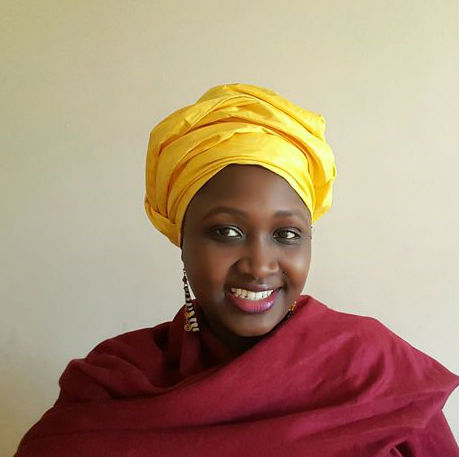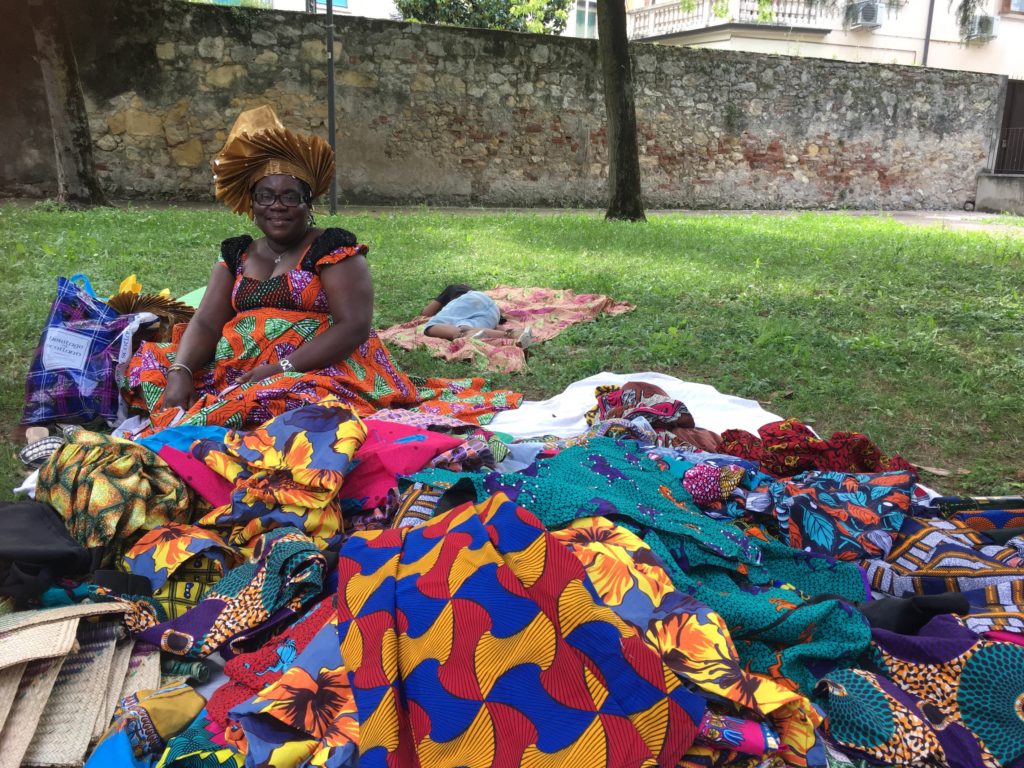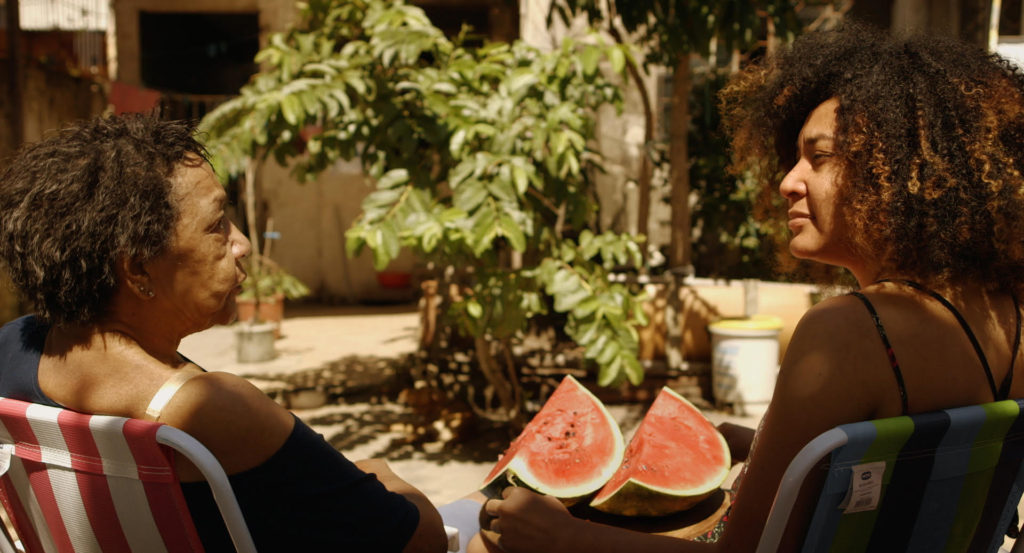Conversation with Nadina Christopoulou, co-founder of Melissa, a network for migrant and refugee women in Athens, Greece. She explained Melissa philosophy, placing migrant and refugee women’s experiences at the heart of their actions. Nadina also spoke about the situation of migrants in Greece and how Melissa Network is supporting their members during Covid-19 pandemic.
✍🏾Juliana da Penha
In a typical day at Melissa premises, around 150 people, from 45 different nationalities attend a variety of activities, from Greek and English as a second language, drama therapies, art and creative workshops, different skills and media training and finally advocacy support. Women are at the centre of their work.
Melissa (Greek word for honeybee) was created in 2014, and at the beginning, the program was supporting migrant and refugee women who have been living in Greece for a long time.
Nadina Christopoulou, a Greek anthropologist and responsible for running the program, told that the idea of this network, part of her post-doctoral research, started during the years she was working with different organisations. In her findings, she realised that migrant women organisations were not connected to one another. “The reason we created Melissa was to be able to bring all those organizations together and also to make a kind of platform where could be a lot of exchange, sharing knowledge and all that”.
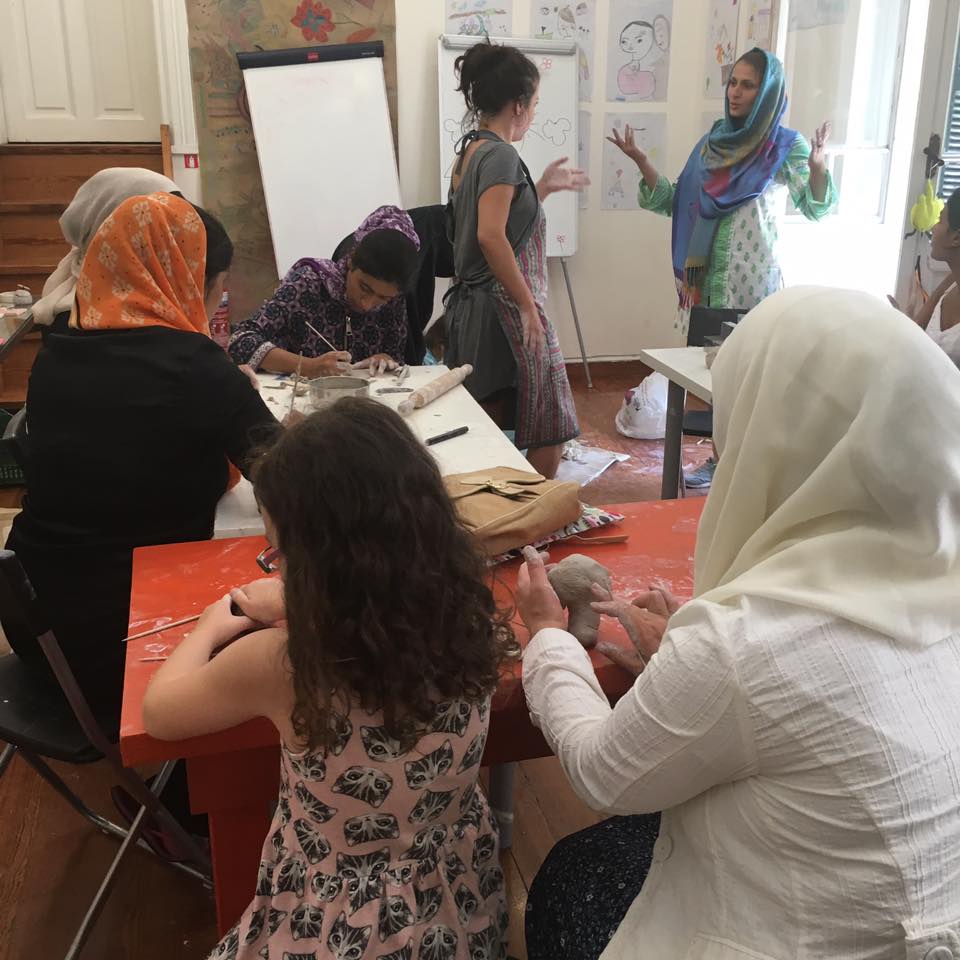
From 2015 onwards, there was a significant influx of refugees in Greece. In the space of a year, about a million people were transiting into the country. So, at some point in 2016, when the borders were closed and thousands of people in hardship, Melissa decided to come up with a program designed based on the experiences of the migrant and refugee women, community workers and leaders.
In this conversation, Nadina explained how Melissa Network provides a space to migrant and refugee women to feel safe, heal their traumas, learn new skills, be empowered, support their communities and feel at home. Moreover, she told about the impact of Covid-19 in their work. Lastly, she shared some concerns and possible solutions for the issues migrant and refugee women are facing in Greece.
“The reason we created Melissa was to be able to bring all those organizations together and also to make a kind of platform where could be a lot of exchange, sharing knowledge and all that”.
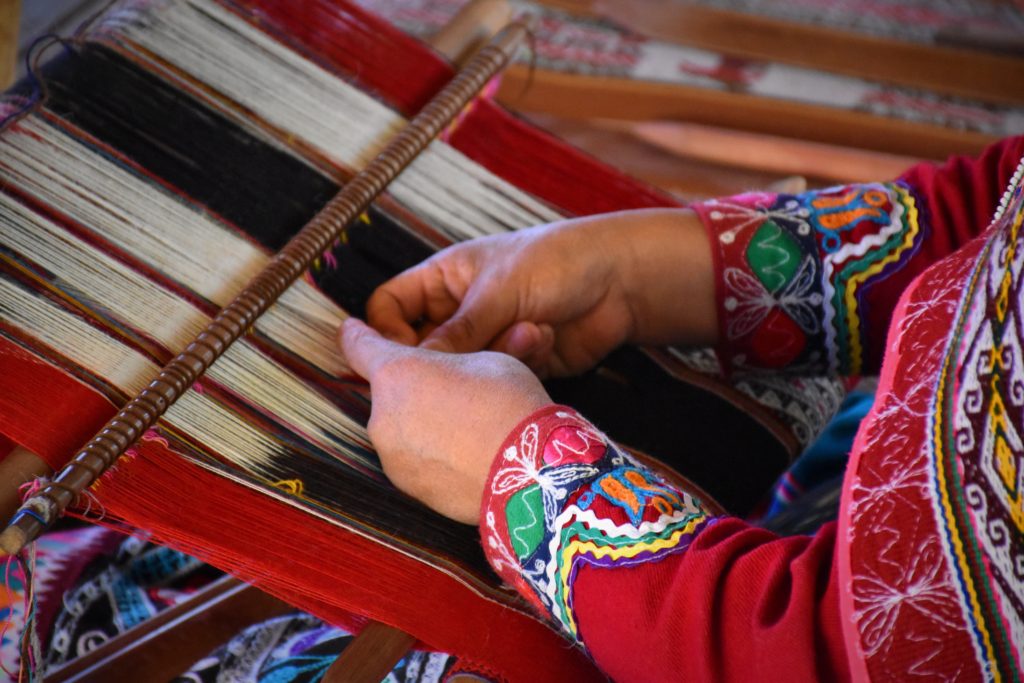
Interview with Nadina Christopoulou
Could you explain the philosophy behind the approach Melissa uses to design the program of activities, focusing on migrant and refugee women experiences?
Nadina: We created a holistic approach to integration. Basically, addressing the different kinds of needs, not on the patterns of the traditional mainstream integration model, that is basically language learning, skills and access to the labour market but try to do it in a way that is not patriarchal in its conception.
Of course, we did start from education but a kind of education that was more adapted to the actual needs of the women involved and to the experience of migrant communities, in terms of what they could offer. We have then sat down with linguists specialized in teaching Greek as a second language and come up with a module that is very practical but at the same time very efficient and taught in a very fast-track way.
We developed the tools and we did it based on what will be necessary for a woman to find herself safe in another country, without speaking the language, without knowing anything. So, it starts with the fundamental things, and it all happens in layers. At the same time for us is very important to support completely illiterate people. We had women there were transitioning from complete illiteracy and were learning fast, not only one but more than one language. That was not only very successful but also very experimental in many ways because we had a tremendous response.
We developed the tools and we did it based on what will be necessary for a woman to find herself safe in another country, without speaking the language, without knowing anything.
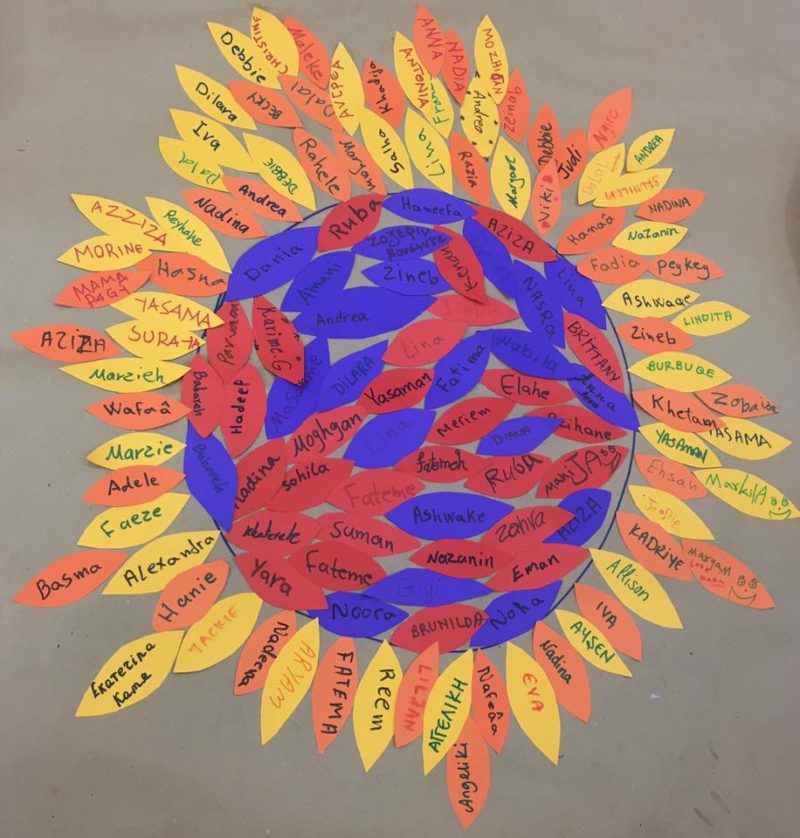
What are the reasons you had a good response using this approach?
Nadina: While other programs were failing in Greece, we had zero dropouts. The reason for that is this holistic approach, the other things we added, that was beyond education. We thought that to make learning possible, for people who were recovering from surviving trauma to be able to absorb knowledge and to be able to adapt in a new reality, you have to make sure you provide support for the mental health.
For us, it was essential that women do not only take part in educational courses but that they follow a powerful and versatile mental health module at the same time. So, we work a lot with drama therapies, psychodrama and a lot of different methods.
I think this is one thing that makes learning possible, the fact that, yes, they could do language classes, but at the same time they could discuss how they feel. When they feel comfortable enough to open up, we create an additional module which is an art and creativity.
What are the other activities this program provides? Do you have different age groups attending?
Nadina: We provide language, mental health support, psychosocial support, art and creativity, information, skills training, advocacy support and media training. Finally, another module, which is self-care and community engagement, for being able to look after yourself and to look after your community. That was very important because it was taking into consideration not only how a woman can access the labour market but also how a woman can become a leader in her community. How she can be a representative of that community, speaking in her own words, expressing herself in her own terms.
Initially, we started to work with girls from 14 years old, and now we also have a kid’s program. Naturally, that was an essential component because we created this kind of 7 steps holistic model, but we complemented it with childcare. We noticed what we’re making other projects fail was because women could not leave their children and come to join a learning process. They need childcare, and we do that together with one of the best-organized communities that is the Philippine, who have their own school, their own trained teachers and all that. We also provide an ongoing interpreting/translation during all day, and this guaranteed that we could keep the classes mixed.
That was very important because it was taking into consideration not only how a woman can access the labour market but also how a woman can become a leader in her community.
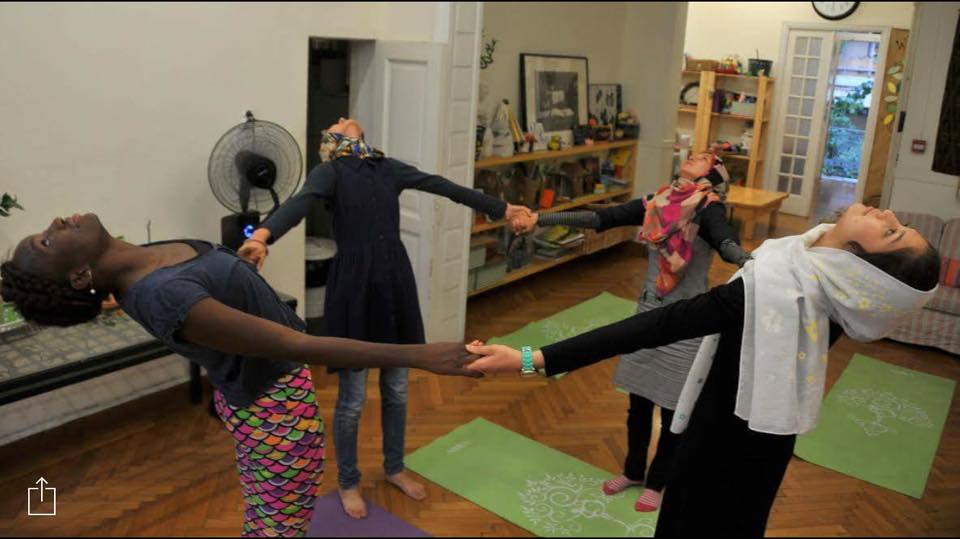
You mention you have 45 nationalities interacting in Melissa centre. How it works?
Nadina: In the centre, daily, there is not only the programs that we run, but we offer access to other migrant and refugee communities, especially the women’s groups, to come and use it. Like this, there is an endless opportunity for people to interact with others. If for example the Ukrainians are sharing something or celebrating Christmas, they will do it with us, and the Afghans will take part in it. We try to do it in a way that fosters a lot of exchanges.
The space is open always, even on the weekends and in the evenings. People can come and do their rehearsals, their lessons, religious and discussion groups, whatever interest them. We have a kind of open access, we leave the keys at a bakery across the street, they sign up, and they know where to pick up the key.
It’s a community space. We run it in a very organized way because it is crucial to have it always clean and nice, but it is also a very open space. We run it like a home. For us, it was imperative to run it like a home because it is essential to recreate, inspire the sense of feeling welcome somewhere. We have a kitchen, we serve meals, there is always coffee and tea, biscuits and cakes. Some people make things in their homes, and they bring. It’s a kind of vibrant community space.
For us, it was imperative to run it like a home because it is essential to recreate, inspire the sense of feeling welcome somewhere.
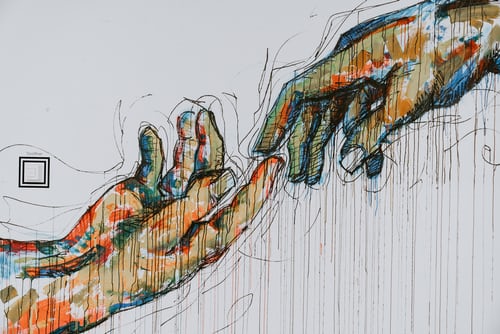
How Covid-19 pandemic affected Melissa Network?
Nadina: We were apprehensive, following what was happening in Italy that it might get out of control. We were terrified because all our work relies on precisely what makes COVID-19 spread; a lot of people gathering together, being very intimate in many ways, very affectionate, a lot of sharing and emotions. We have mother’s coming with small kids, kids coming after school. So, it’s constant exposure. Consequently, we were freaking out with the idea of having cases.
We started to raise awareness from February onwards and also organised some basic training regarding sanitation. We installed a lot of information with posters about how to protect people from infections, for them and their kids. Basically, we started to create an emergency mode. We gave instructions to the women who commute from far away, to avoid transport. We did the same with people who have vulnerable health, so we advise those to stay at home until further notice. We also started to create groups based on their vulnerability. We formed groups in case we would have to shift online, to be able to follow more vulnerable people, to follow up with medical needs, with psychological support and all that.
We organise first for the people who were more vulnerable and then we decided soon after that to shift to remote work. We also split our groups based on languages spoken and created a very active online communication. We were lucky because we had the time to do it in advance. We didn’t do it in the last minute. Fortunately, we took quick measures. Now everybody is online, we are fully engaged in supporting the people and continuing whatever is possible. If we didn’t organize in advance, it would be like a complete disaster.
We organize first for the people who were more vulnerable and then we decided soon after that to shift to remote work. We also split our groups based on languages spoken and created a very active online communication.

What are the impacts of the lockdown for Melissa members and for other migrant and refugee women in Greece?
Nadina: The real effect is not only the fact that our activities are suspended. Is the fact that our members, the people who participate in our program – we are talking over 150 people daily- all those people are, in many ways, isolated. They don’t have social support networks beyond us and the very few organizations that support them, they don’t have their family networks, they don’t have a social support system that provides for them. Many people are in Greece without papers, many women are facing a lot of precarity because of that.
As you probably know, since March for different reasons, the access to asylum application was suspended. So, it’s tough for them. Many of the women are facing immediate arrest and deportation. Many others are facing a lot of practical difficulties with kids because they are not going to school as schools are closed since early March. Moreover, they lack food supplies, have delays in their cash cards and all that. But the most significant danger is that for many women, home is not a safe place. For all those women facing gender-based violence or domestic violence inside their homes, the message “stay home to be safe” is not a guarantee of safety for them. This is one of the biggest problems we are facing. Let alone the fact that there is arising the number of people facing evictions, running out of accommodation access and facing homelessness.

Daily, we are dealing with women who have nowhere to leave. Unfortunately, no organization is accepting anybody right now, it’s an emergence state, so nobody is going to allow somebody from the streets, even if the person is facing a lot of challenges. It’s very complicated.
Basically, we are witnessing women making deals with different smugglers who offer access to accommodation, and there is nothing we can do. Many times it is the only choice they have. It is very little we can do. We try to speak on the phone to make sure that is a family and not a man alone, giving some advice and maybe, providing a small financial supplement if they are facing precarity or things like that. But it is a complicated situation, and honestly, I don’t see another way out of this.
For all those women facing gender-based violence or domestic violence inside their homes, the message “stay home to be safe” is not a guarantee of safety for them. This is one of the biggest problems we are facing.
What kind of online support Melissa is providing for your members at this moment?
Nadina: Basically, we shifted to online support immediately after our emergency organizing. We have online help for information, psychological support, social services, language teaching and also for some of the art teachings. We have shifted to remote work earlier and moved most of the content online. Of course, it is not the same, obviously, but it works.
One of the things we created is an internal on-line journal, like a diary of isolation. It’s a place where not only the women who are here now but also women who relocate to other countries, post things about their loneliness, like a view from the window, a picture of their child doing activities or a recipe, something they cooked, a memory or a dream. It’s actually the most beautiful thing to wake up and go to sleep with because there are a community and a lot of love, affection, tenderness and a lot of resilience. It’s truly inspirational. There is a constant flow, a lot of emotional outbursts but also a lot of sharing and giving strength to one another.
There is a constant flow, a lot of emotional outbursts but also a lot of sharing and giving strength to one another.

What do you think can be done to support people are isolated, having financial hardships at this moment? Also, what can be done in the long term to support migrant and refugee women to overcome their difficulties?
Nadina: I think that should be some concern by the State, with the intervention of the United Nations to deal with those people as they are a very vulnerable population. They should deal with issues of precarity in terms of their legal documents and in terms of access to very basic needs. Especially in the case of women, for women with small kids, there is a need for some provisions allowing them to specific access to some support structure. I am not saying that just because it is the population we work with, and we are very much emotionally attached to them. I am saying because I think that when women and children are safe and secure, it is better for everyone. The more you provide for the vulnerable population, supporting and protecting them in this crisis, is better for everyone.
I believe that now is not the case to deal with all the problems at the same time. I am sure that will come a time when we can deal with the documentation. I think the universal medical access and more practical measures regarding accommodation and food support are not hugely expensive. I am not talking about anything insane, but I am talking about fundamental needs, that could be implemented. Organization as ours would be more than willing to achieve them.
When you are dealing with the crises, the women are the ones that tend to suffer most because they become double marginalized, their vulnerability increases in this context.
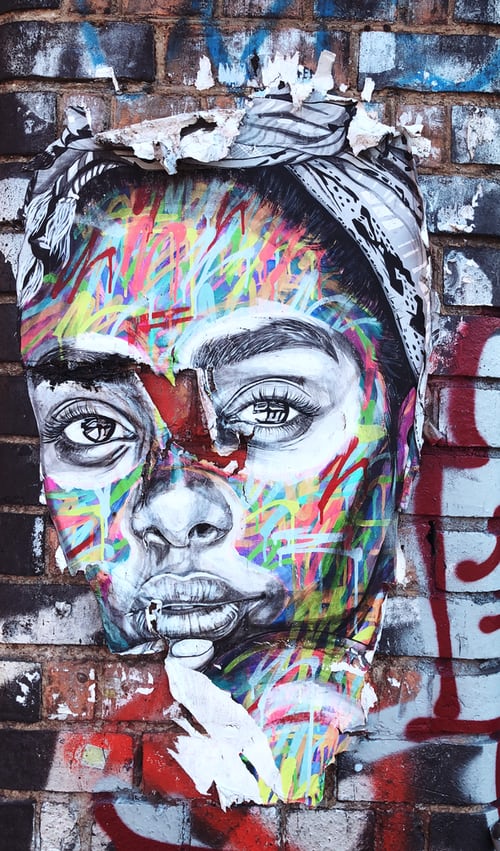
I am very concern about those things also because it is crucial to be able to don’t turn a blind eye to the violence that may happen in houses that are controlled by smugglers or in very violent homes. Those are critical issues. When you are dealing with the crises, the women are the ones that tend to suffer most because they become double marginalized, their vulnerability increases in this context.
We are trying to advocate for things like that. The most challenge situation is what people are witnessing in the islands because it is there where women are stuck in really squalid accommodation, inside camps, with no access to basic sanitation and all that. On the other level, one of the things we are advocating for is that people in the Islands are immediately evacuated and brought to the mainland, in structures that are more appropriately organized. You can’t have tens of thousands of people stuck in camps. It’s risky. At the moment that something happens, it can become viral in literal terms. It’s quite complicated, and we need to be more proactive when it comes to that. Right now, we are just stuck with our hands tight. And I think that the government and international organizations must become more proactive in promoting this kind of support

